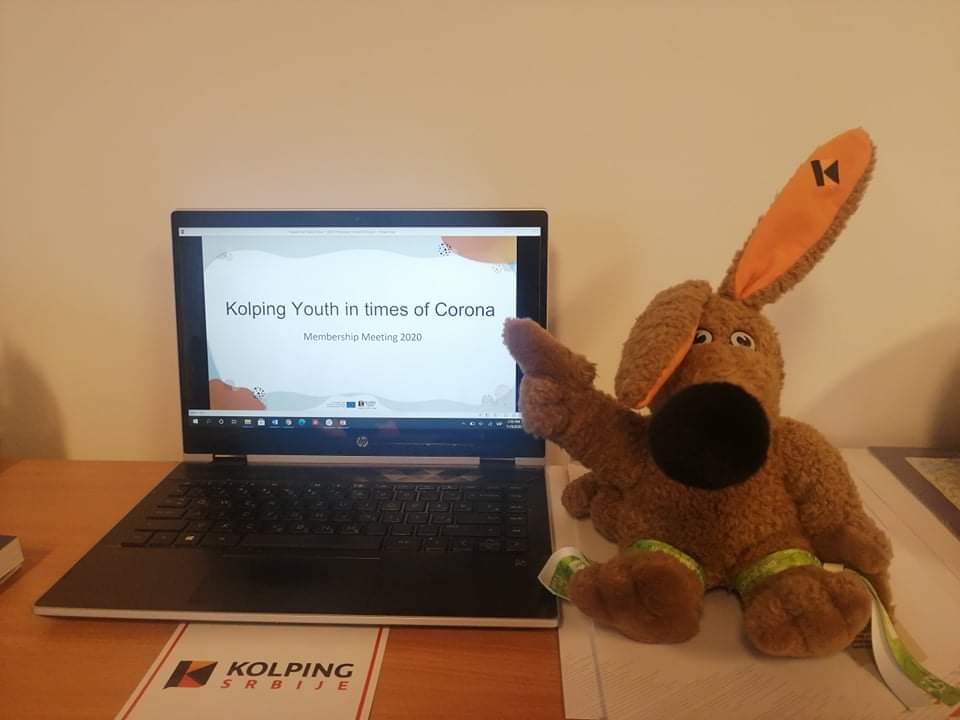
“I can’t believe I forgot my mask again…”, “When is this going to be over?”, “I feel like we’re the first generation ever that didn’t get to celebrate graduation.”, “I miss going out with my friends so much.”, “I think that I will go crazy if I apply for another webinar.”, “I live for the day to take my passport and go on holidays.”, “Okay, sorry, I will turn off my microphone.” Do you find these statements familiar? Probably yes, just like many youngsters from different Kolping societies who joined the Membership Meeting 2020 that took place online on 17th October.
It is well known that COVID-19 is dangerous for everyone and that it affected all areas of our lives, but we wanted to look closer at what has changed in the lives of young people in Europe. For that reason, we had a look at the survey “Youth & COVID-19” conducted by the International Labour Organization that shows how the crisis affected young people’s jobs, education, rights and mental well-being (see link).
Even before the pandemic has started, young people somewhat struggled to find decent jobs, especially when they need to combine education and working. However, since the onset of the crisis 1 in 6 young people aged 18-29 has stopped working. Among those that were employed before the pandemic, an average decline of working hours by 23 per cent was reported which resulted in a lower income for 42 per cent.
Devastating is the fact that nearly one in eight (13 per cent) of young people saw their education and training come to a complete stop, with no courses, teaching or tests set since the pandemic began. Even when, to some extent, institutions managed to transition to distance delivery teachers, trainers and students may not have been adequately equipped to ensure continuity in learning (internet access, lack of IT equipment, lack of space…). But, youth wouldn’t be youth if it didn’t find a way to adapt: 44 per cent of the young people surveyed had pursued new training courses since the start of the pandemic.
Young people – similarly to many vulnerable groups – have often had difficulty accessing their rights. As we experienced, countries around the world have taken decisive action in response to the pandemic, including the adoption of “stay-at-home” measures to slow its spread. This has had a severe impact on the rights of youth to leisure, to participate in public affairs and to practice their religion or beliefs.
All this greatly affected young people’s mental well-being. Family stress, social isolation, risk of domestic abuse, disrupted education and uncertainty about the future are some of the channels through which COVID-19 has impacted the emotional development of youth.
Kolping youth didn’t let the crisis to take over. Although exchanges and multicultural meetings are very important for us and everyone enjoys them, the friendly atmosphere we cherish in Kolping was present nevertheless. In the Membership Meeting we talked about some great practices and ways how to adapt our activities to new conditions. In Hungary there was a big music concert planned, but instead they created videos in their households and uploaded it on YouTube so they can still enjoy music. Similarly, an exchange between Kolping Youth groups in Ukraine and Germany that was supposed to take place in Nuremberg was moved online. Other events had to be postponed to next year, such as the Peace Walk in Maribor, Slovenia . . However, also new ideas were developed as a response to the crisis: Kolping youth in Slovakia was busy making face masks and volunteers in Serbia in cooperation with the Red Cross worked on providing groceries to elderly population. Kolping youth truly lived up to one of our favorite Adolph Kolping’s quotes: “The needs of the time will teach you what to do.”
Grlica Golušin, Serbia
You’ve produced a survey, which has given me insight to what youth all over the world is struggling with. I too work with youth at the Kolping House Dysselsdorp, Western Cape, SA…and i can assure you, that it is quite a challenge keeping our young people together. They are confronted with so many psycho-social and economic problems, let alone Covid 19 they now have to face. Congratulations in putting this survey together. Keep up the good work. God bless and all the best. From a Kolping youth development training facilitator. A retired teenager 😂